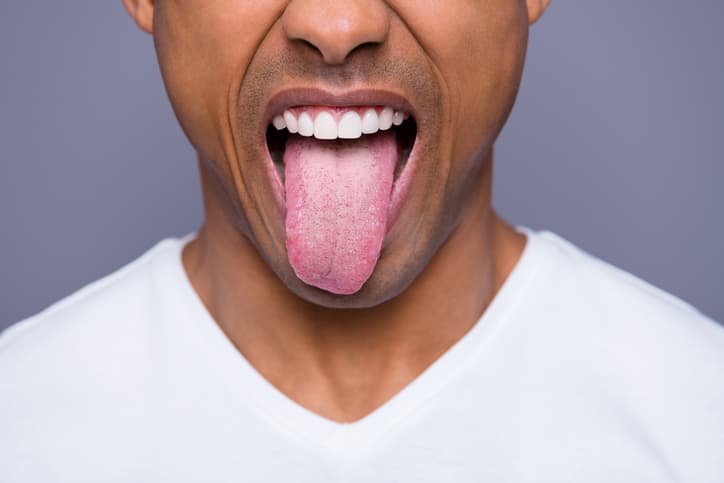
Here are some interesting facts about this disorder (also referred to as migratory glossitis or a wandering rash of the tongue) that you should know.
Geographic Tongue: Causes and Symptoms
The exact cause of migratory glossitis is not known, but according to the National Organization for Rare Diseases (NORD), the map-like appearance of the tongue is the result of inflammation. Normally, the tongue is covered with a layer of tiny bumps called papillae, but if for some reason any of these finger-like projections are lost, those areas of the tongue will be smooth and red with slightly raised borders. These affected areas may change in size and location daily, making the tongue look different each time you look at it.
Although geographic tongue can persist for weeks, in most cases there is no discomfort and no treatment is necessary. But can vary from patient to patient, your dentist can help monitor this for you as well.
Do I Need to See a Doctor for Geographic Tongue?
The National Institutes of Health’s Genetic and Rare Diseases Information Center says that about 5% of people with geographic tongue are bothered by pain or sensitivity, especially when eating spicy or acidic foods. If your tongue is painful, easily irritated by certain foods and drinks, or has become severely swollen (interfering with eating, speaking or swallowing) see your dentist right away. Make an appointment with a dentist any time you have a lesion on your tongue that doesn’t go away within 10 days, advises the Mayo Clinic, to rule out anything serious.
Taking Care of Your Geographic Tongue
In painful situations, your doctor or dentist may recommend using anti-inflammatory drugs to help alleviate discomfort. For milder burning or sensitivity issues, avoiding hot spicy foods and alcohol may be advised, says the National Institutes of Health.
Oral hygiene is always recommended, but pay special attention to your oral health if you have a geographic tongue. This means brushing your teeth and tongue twice a day. And don’t forget to floss daily.
Risk Factors of Geographic Tongue
NORD reports that migratory glossitis occurs in about 3% of the population, with females being more prone to it than males. It also affects younger adults more frequently. It seems to run in families, so there may be a genetic link. People with a fissured tongue, a condition where the tongue is deeply grooved and has a wrinkled appearance, may also have a higher risk of developing this migratory glossitis, as can those who have a vitamin B deficiency or have the inflammatory skin disease, psoriasis.
